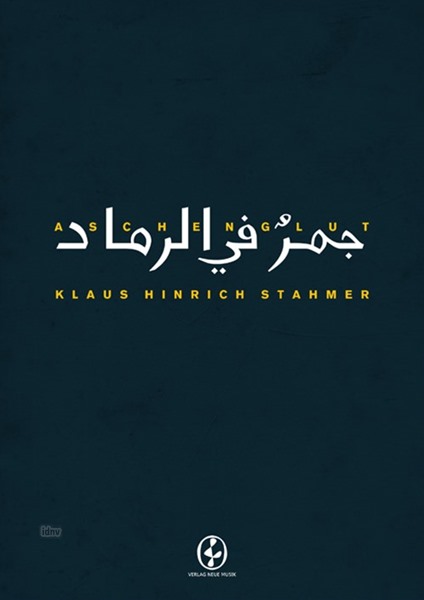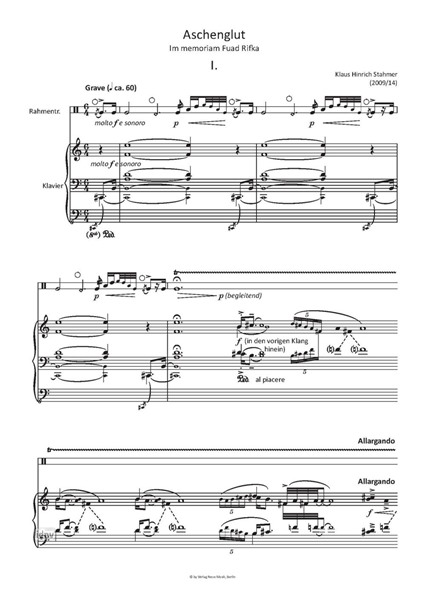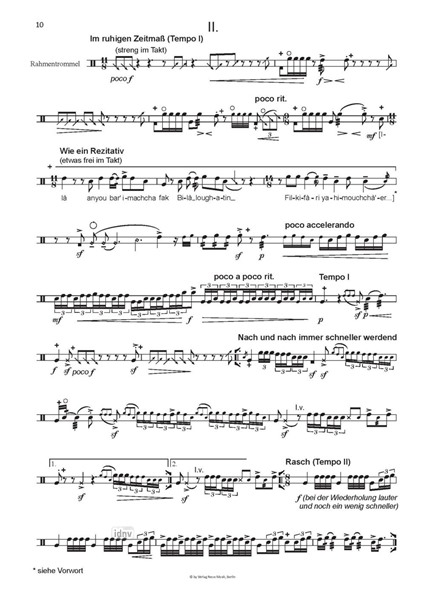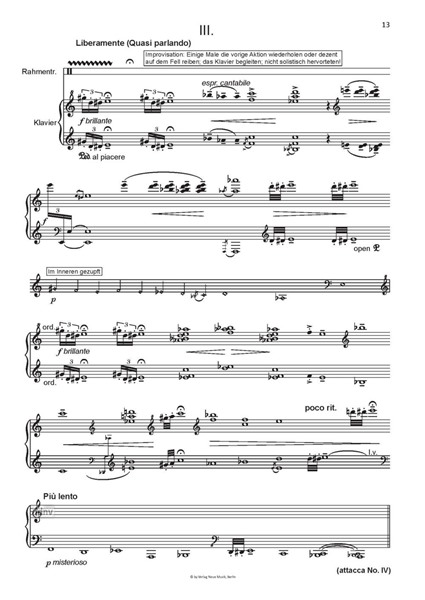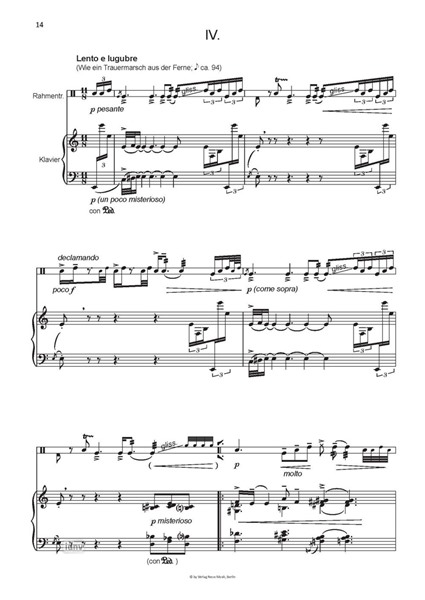Your basket is currently empty!
Aschenglut für Rahmentrommel und Klavier (2013)
Instrumentation: Drum, Piano
Drum, Piano
Performance scores (2)
Included Part(s): Drum, Piano
Stapled
Format: 21 x 29,7 cm
Pages: 40
Weight: 160 g
Verlag Neue Musik / NM1702
ISMN: 9790203222330
ISBN: 9783733312800
incl. VAT
plus delivery costs
Drum, Piano
Performance scores (2)
Included Part(s): Drum, Piano
Stapled
Format: 21 x 29,7 cm
Pages: 40
Weight: 160 g
Verlag Neue Musik / NM1702
ISMN: 9790203222330
ISBN: 9783733312800
incl. VAT plus delivery costs
24,80 €
Delivery time: 10 days
Aschenglut was inspired by some words of the Lebanese poet Fuad Rifka (1930-2011). The most elaborate art of declamation he had shown when reading from his book „Die Reihe der Tage ein
einziger Tag“1 [All days like one day] was simply fascinating. His recitation was like music and had served as a bridge that lead the audience right into the complexity of his ideas. One could almost
feel the beauty of his country and how this old man once had spent his days in the shadows of the green hills or in in the burning hot desert with many a village destroyed by the war. The pains of
someone who felt as being abandoned by all his friends had taken shape in his words, not less than his self-assumed role of a warrior. On the occasion of our first encounter Rifka and myself made plans for an artistic colaboration which ended in a CD [artist cd ARTS 81092], a number of pieces for piano solo [Ghina’û Hattab], a solo-piece for the Arabic Qanun [Zikkrayat] und finally the duo Aschenglut2. The latter consists in four movements for an Arabic framedrum and piano. In combining an oriental with a western instrument, I tried to adopt some oft he characteristic techniques of a Qanun. In accordance with the poet’s words, the 1st movement of Aschenglut bears some significant gestures of a Marche funebre: He has come to age / but who is there to stay with him? Words of an old man who has drawn his bilance, and who looks at himself as being a collector of wood; of someone who imagines becoming himself one of pieces of wood he is about to gather and which will crackle in the fire and in the end turn to smoke and ashes. – The 2nd movement has an even closer affinity to Rifka’s poetry in presenting the following passages almost like a recitation:
Wordless and unable to speak, the poet tries to find his way in the desert as the light fades and as it is getting dark and darker: „Oh, all you collectors of wood, the eagles of enlightenment and
silence, I will be the only one to survive, more as a smoke in the air than a man. I kindled the fire, but this will be the very end and I myself will be this fire. The light of the sun will disappear when
the ashes will be stirred and rise into the air – almost like a requiem.“3 These passages should sound as if being „spoken“ on the skin with the fingers, and the drummer might whisper or murmur
the Arabic words along with his playing. […]
Klaus Hinrich Stahmer











